filter *.com
Media make and remake our world. But which world is it that we see? This question appears to rapidly gain importance and everyday relevance in the times of ubiquitous and pervasive Internet access. The filter *.com installation demonstrates to participants how their (digital) world is highly regulated, in an Orwellian manner by automated and annonymous, unseen and unnoticed algorithmic mechanisms, put in place by obscure government agencies or for-profit companies with unknown agendas. But in shooting the elephant, one first destroys one's own freedom, and with it one's values, ideals and society.
Silently and without attracting much attention, the filter has established itself at the heart of digital media: It became an essential tool and a limiting factor in all areas of life. Applications include profiling in search of terrorists and ordinary Internet searches, news and image filters, text search and replace, junk mail filters, and virus scanning. 'The databank know[s] my number [...] there ain't a thing that it can't do' [AC/DC 1986], and 'delete doesn't happen' (Danja Vasiliev). In this brave new world of digital technically implemented policies, essential decisions are made for us, many of them in microseconds, of which we never know. Popular culture is normalised by making a priori decisions for the users, and by deciding what is left on the table for them to decide. Computer users believe themselves to be in control of the medium; and the computer is widely seen as the medium that finally hands control over the production and distribution of media content back to its users. But, as Stephen Wilson points out, 'the inclusion of choice structures does not automatically indicate a new respect for the user's autonomy, intelligence, or call out significant psychic participation. [...] The missing choices might be more important than the 'choices' offered.' Anthony Dunne and Fiona Raby observe that we were surrounded by 'products that give us an illusion of choice and encourage passivity.' It is hard in this context not to (re-) think of Adorno's and Horkheimer's critique of mass media, and Chomsky's critique of democracy.
filter *.com is a participatory installation. Users interact with the work by dialing-in search terms of their choosing into a custom-made interface and trigger a simple mechanical switching device. An autocompletion function suggests search terms; this function is based on the words from John Perry Barlow's 'Declaration of the Independence of Cyberspace'. When the search is started, the installation rapidly and randomly displays images found online relating to the search query, mixed up with images relating to data security, data storage, censorship or hacking, at a rate of approximately 25 images per second via a video projection based format. Sound is generated from each image. The images start to slow down after a few seconds, and finally stop on a random image, together with the sound.
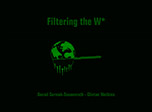
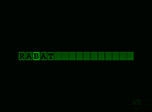
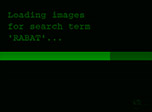
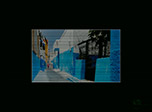
Filtering the W* screen shots
Participant engagement with the installation aims to generate a stimulating sensory experience as a direct result of the search system's rapidly projected imagery and synchronised audio. This in itself is a key aspect of the installation as the experiential dimension seeks to intensly immerse both participant and observer with digital content that connects conceptually with the concept of digital filtration. Participants and observers are bombarded with flickering imagery and sonic noise offering a surprising and fun interaction with web-based data that surrounds us in every instance in a contemporary technological society.
The installation employs the tactics it criticises; it offers a limited world to explore easily while making it difficult to access anything else. Participants are offered a direct and controversial experience. While a particular interpretation of the work is not prescribed, it challenges participants to critically question this medium and other media.
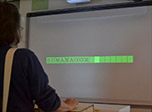
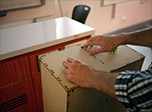
Creativity&Cognition (C&C) 2013, Sydney, Australia, Jun 17-20, 2013
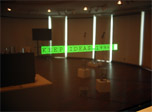
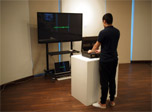
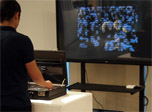
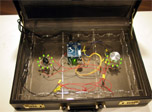
ISEA 2014, Dubai, UAE, Oct 30-Nov 8, 2014
Daniel Cermak-Sassenrath, Clinton Watkins. Filtering the W*. Installation. Creativity&Cognition (C&C) 2013, Sydney, Australia, Jun 17-20, 2013.
Daniel Cermak-Sassenrath, Clinton Watkins. filter *.com. Installation. 20th International Symposium on Electronic Art (ISEA) 2014, Dubai, UAE, Oct 30-Nov 8, 2014.
|









